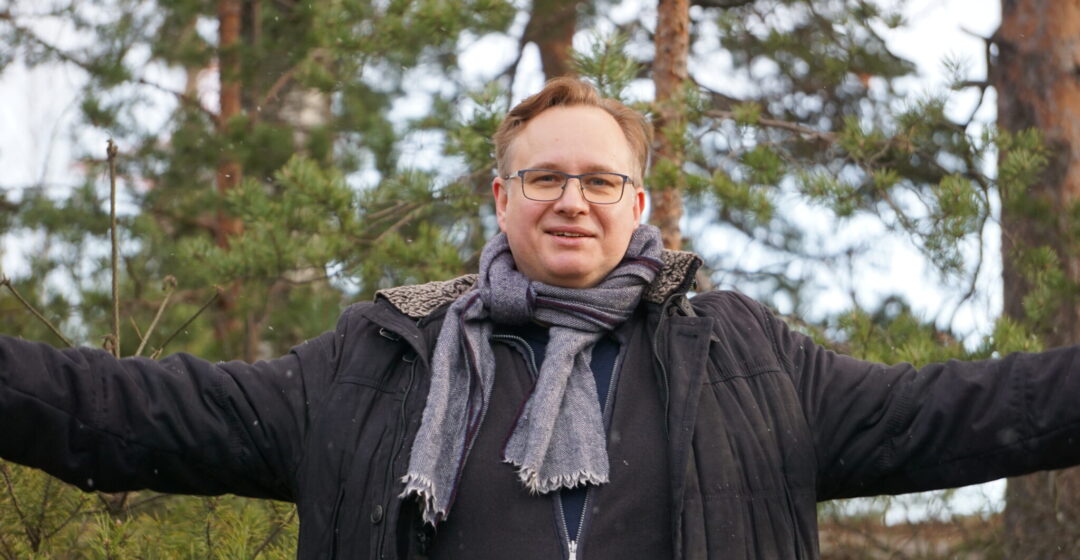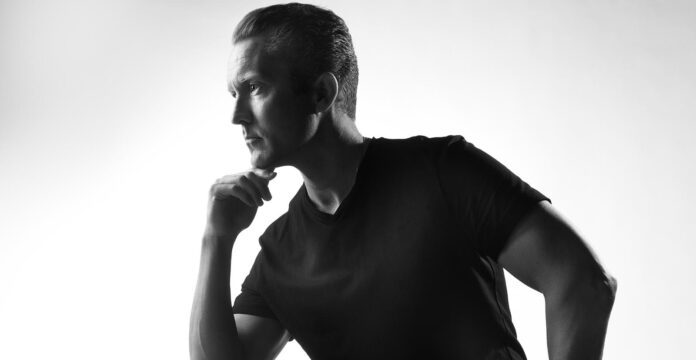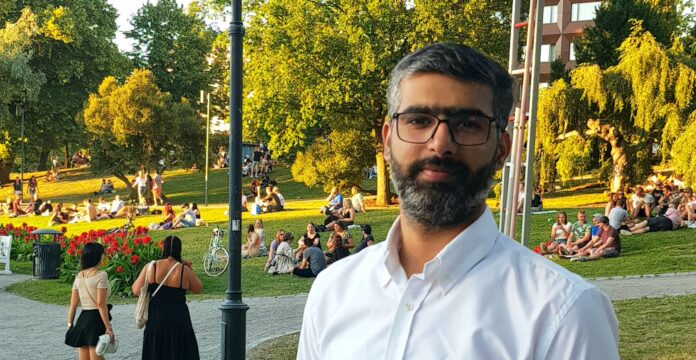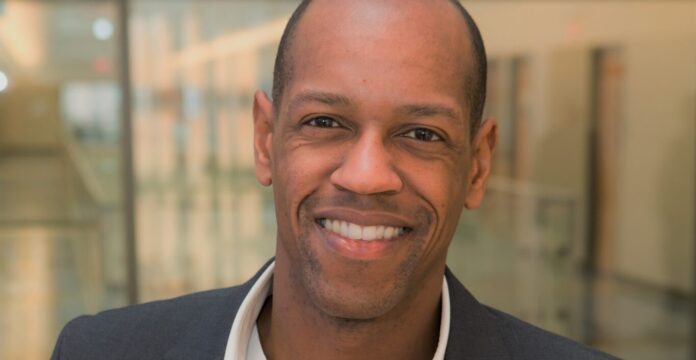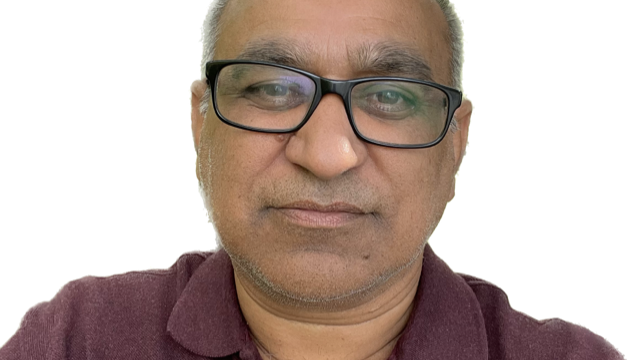Image: “This photo was taken by my wife back in March or April last year and shows me embracing life in the Finnish ‘wilderness’ (well, a little nature reserve on the outskirts of Helsinki). Walks at the end of the day really helped decompress after a day or a week of back-to-back online meetings.”
This series introduces the members of University of Vaasa’s InnoLab research platform. Today we’re meeting Martin Meyer.
What are you?
I must be a juggler 😉 There are two roles waiting for me as the incoming Director of InnoLab and Vice-Rector for international affairs. Currently I am the Dean of the Business School and a Professor of innovation at the University of Aberdeen in Scotland.
Sounds impressive – but what exactly does an InnoLab Director and University Vice-Rector do?
As InnoLab’s Director I will work with colleagues to build on successes and develop a shared vision for the way ahead. It should be one in which every InnoLabber can see themselves contributing and our stakeholders can see some real added value.
As Vice-Rector, my job will be to bring more international students and staff to the University, help promote the University’s international reputation and its position in rankings, and develop purposeful partnerships with other institutions.
Sounds like a lot of work. Why bother?
I like change and working with people in a team. Making a meaningful contribution and learning something new and interesting is important to me.
How did you end up where you are now?
It’s a long story… And a mix of serendipity and a lot of work. Way back in the 90s, I was a business student from Germany on my Erasmus year in Sweden. I participated in an essay competition about how technology would change the world 25 years in the future. A trip to London was my reward and this is where I met the Finnish winner, who is now my wife.
On the advice of my Swedish supervisor I did a PhD in science and technology studies at the University of Sussex, where they have a specialised research centre for science policy. You won’t be surprised to learn that my research often led me to the Nordic countries.
For a while I worked at Aalto University and then did some more project work in other places in Finland, Sweden, Belgium and the UK. In Britain I met some people who are now in Vaasa. Our collaboration continued here: I became an international part-time professor at the University of Vaasa and then a visitor at the School of Technology & Innovations. There I worked mostly with colleagues from the SC-Research group.
I have always been quite entrepreneurial and a boundary spanner, so I said ‘yes’ when I was asked to help develop my then-university’s expansion into business studies. I started from a great but small base and grew the department in a short time. That earned me my next gig at a more established business school, where I was put in charge of growing the school while also putting it on the map internationally. In other words, gaining all the stamps of approval and accreditations business schools are meant to have. That done, I found my next project in Scotland and, well, then there was this opportunity to return to Finland. I really couldn’t say no to that, could I!
No, you couldn’t! Now, imagine your phone rings. It’s the call you’ve been hoping for – what is it about?
The ‘call’ I would be hoping for would be about Covid-19 and be a good news call telling that we can meet students, colleagues, collaborators and stakeholders in person again. I think everyone has done a great job in dealing with the challenges over the past year. We have all been good at moving to a virtual space, teaching, organising and running conferences, workshops, and seminars. In spite of all the challenges, I feel there were also many positive aspects in how everyone responded.
For instance, we have had a lot more seminars and events with external stakeholders, visiting professors and international participants over the past year – and record attendances. It would be great to retain some of this and have a mix of live and Zoom meetings again.
That’d be lovely – but the call is actually from a journalist. They’re finally doing a story on that one topic you’ve always wanted to give an interview on! What do you say?
Well, I see my role as a facilitator and an enabler of others. And I would want to speak about the great work done by InnoLabbers – from ELSA to addressing medical deserts, from our contribution to the Kvarken space centre to nature-based service models and business renewal through new and emerging technologies across a range of industries, be it health, media or transport.
I think there is a great story to be told. Let’s write it together!
Happily! Any last advice for being both an effective researcher and a happy office worker?
Always: Keep calm and carry on!!! Learned that in Britain 😉
From the perspective of Martin’s colleagues: What makes you appreciate Martin as a colleague?
“Martin is a dedicated researcher and highly professional academic leader. Typically Martin does not make a noise, but he gets things done with great impact. I welcome him to our University and trust we can do great things together.”
“I was impressed by Martin’s extensive knowledge and his engaging approach from the first time I worked with him. He is able to harmonise multiple perspectives into a cohesive whole. Collaborating with Martin was an inspiring experience for me!”
“Martin’s friendly and good-humoured personality hides inside a researcher whose academic merit speaks for itself. He is highly skilled in building and maintaining open discussion – a true team builder with a capital T.”
